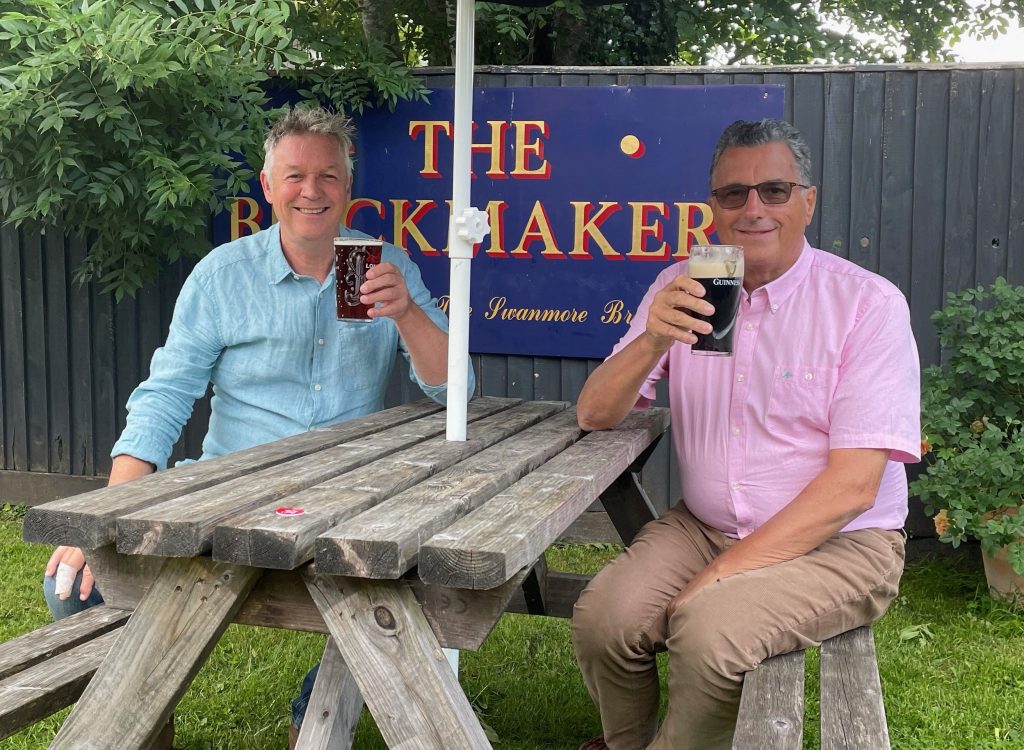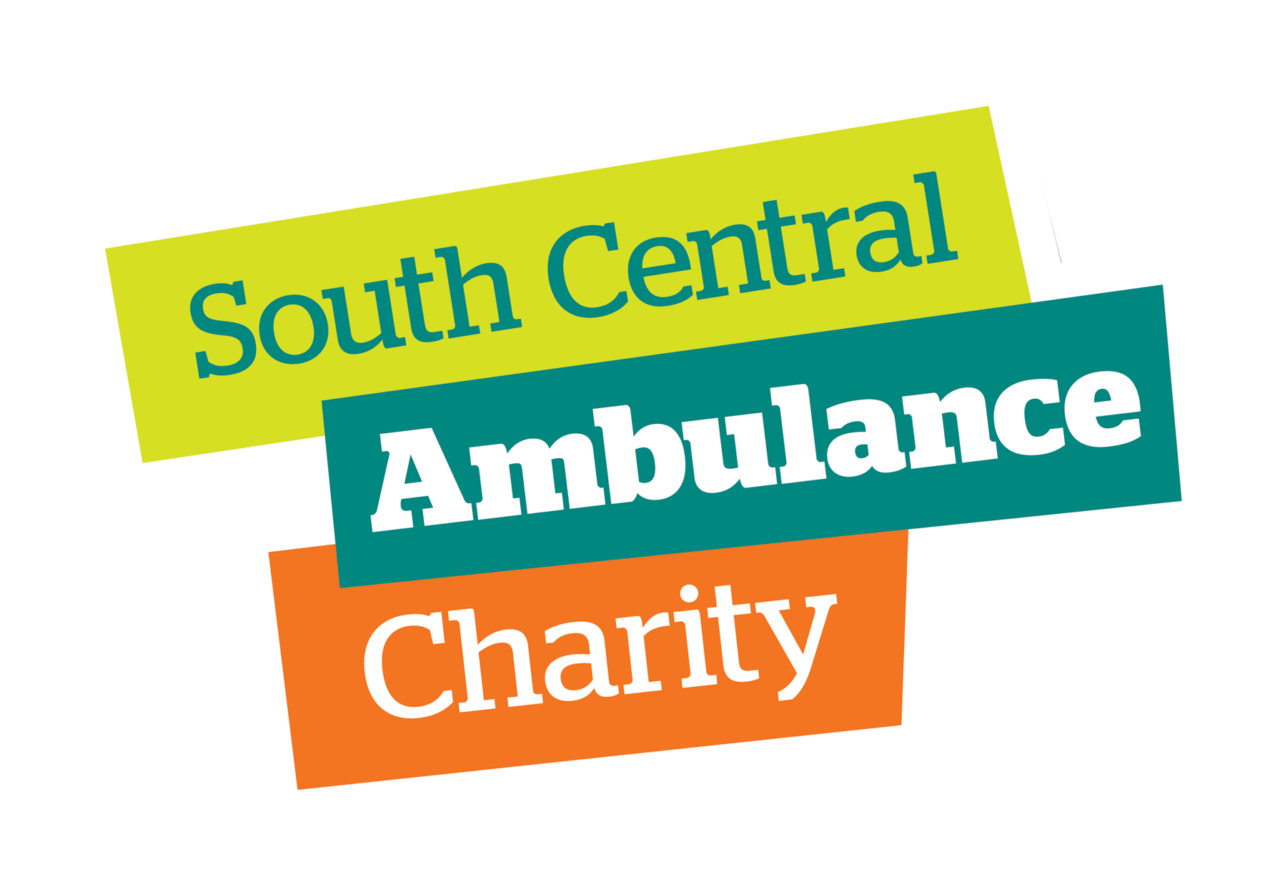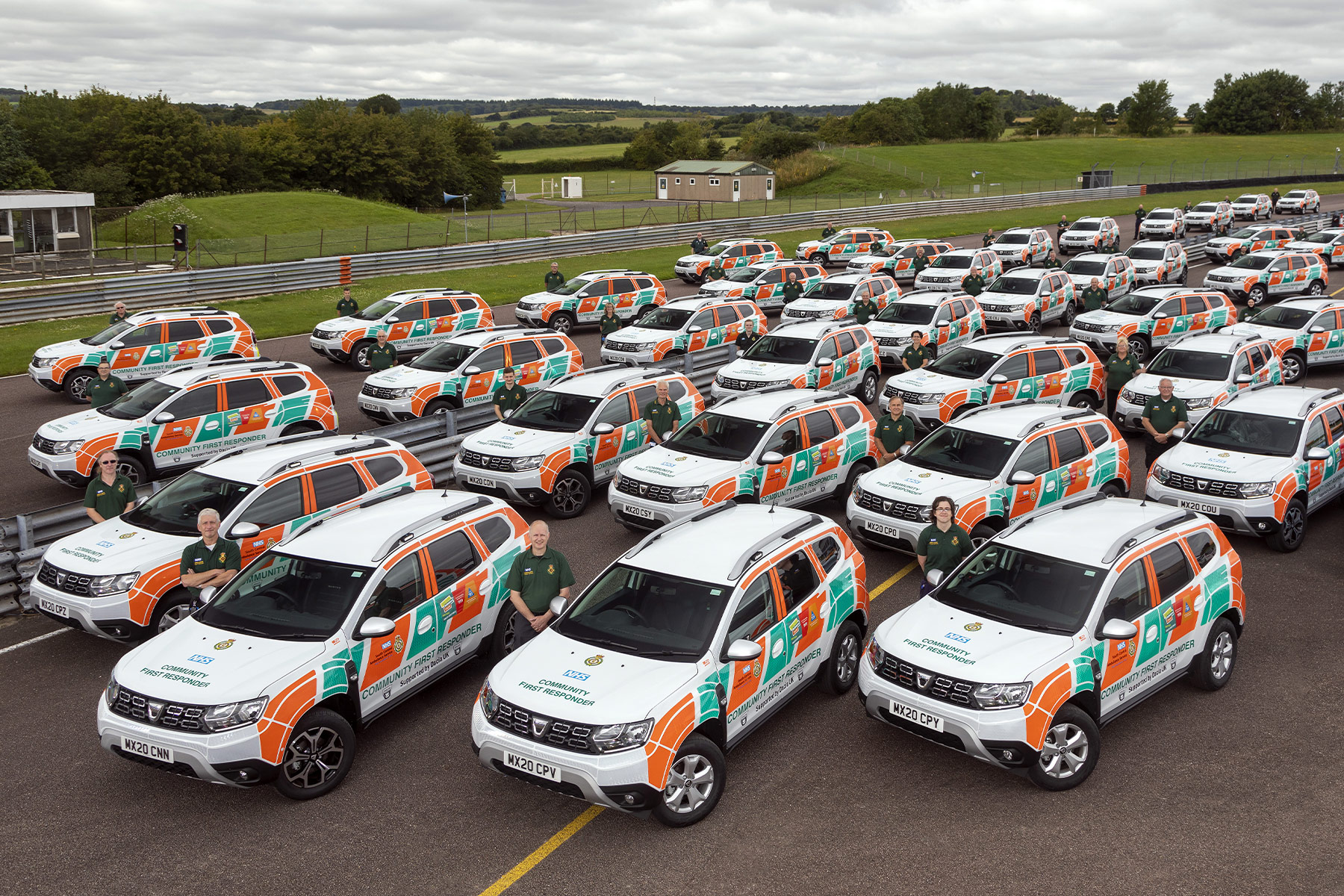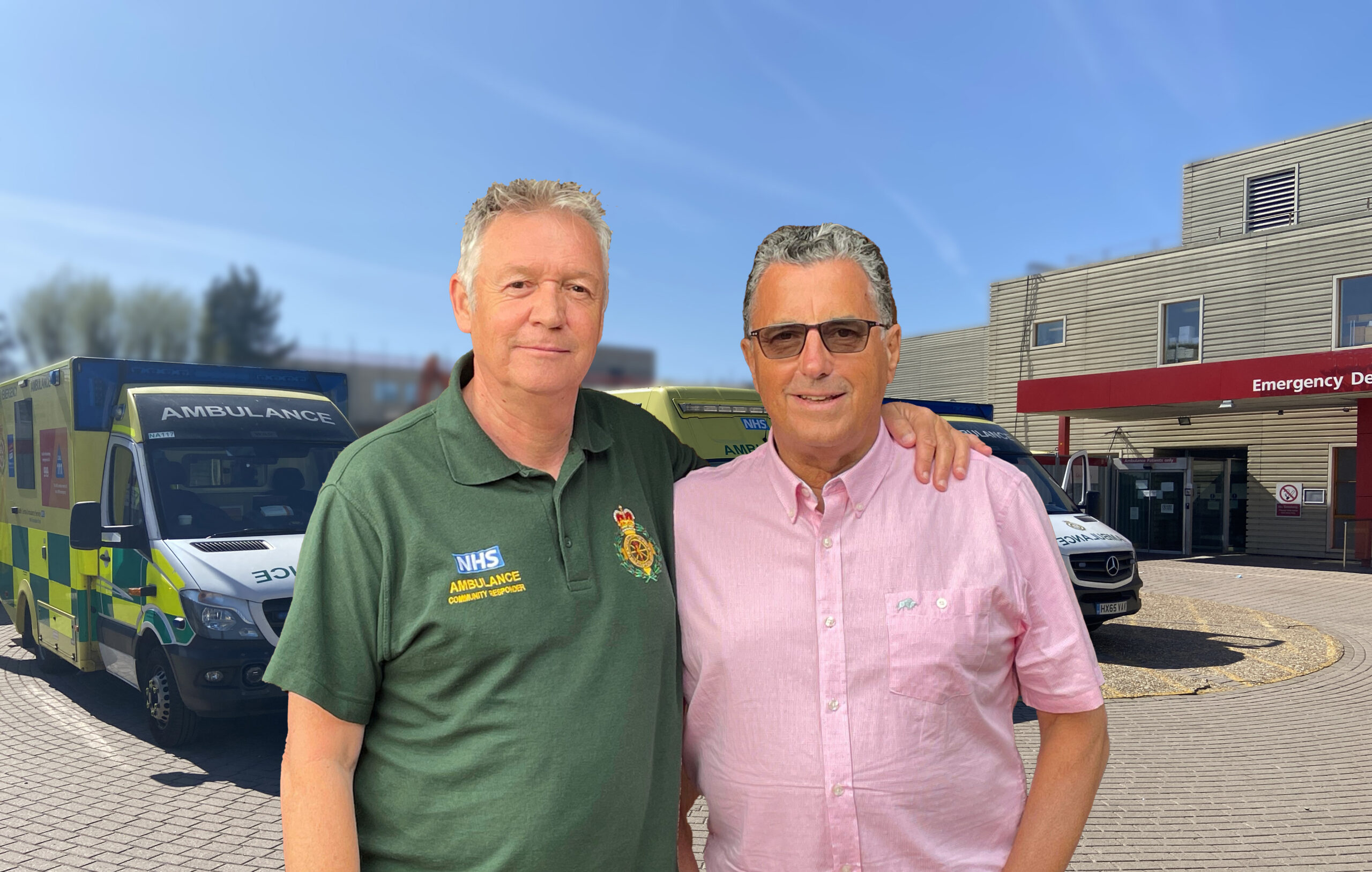Meet Graham and Richard…
A former British Airways cabin crew member was inspired to volunteer for South Central Ambulance Service NHS Foundation Trust (SCAS) after saving the life of his friend who collapsed during dinner.
Graham Langley, 63, from Bishop’s Waltham in Hampshire, launched into action utilising emergency training from his 20-year flight career when 66-year-old Richard Lovegrove fell ill suddenly and lost consciousness on an evening in November last year.
Suspecting a cardiac arrest, which occurs when the heart’s electrical system malfunctions and stops pumping blood around the body, he immediately began cardiopulmonary resuscitation (CPR) while other guests called 999.
He continued this for 10 minutes until the arrival of local Community First Responder (CFR) David Spackman, a trained volunteer for SCAS funded by South Central Ambulance Charity.
David instructed Graham to continue with chest compressions while he set up an automated external defibrillator (AED) and then delivered several shocks before paramedics and air ambulance doctors arrived to continue resuscitation and treatment.
Richard regained a pulse and was taken to the Queen Alexandra Hospital in Portsmouth where he spent six days in a coma and almost eight weeks recovering before returning home. He has made a near-complete recovery from his cardiac arrest but continues to suffer some memory loss as a result.
“I remember watching Richard’s hand move when he was lying on the trolley and that was such a relief and I knew he had a chance. It was an amazing feeling.”
“When Richard collapsed and slumped in his chair seconds after a conversation our friends looked at each other and I realised he wasn’t right at all,” said Graham, who spoke out ahead of World Restart a Heart Day tomorrow (Saturday).
“I’d worked for BA as cabin crew for 20 years and had just retired. We had obviously been trained for emergency situations so I just went into training mode automatically.
“I said, ‘get him on the floor now’ and when I realised he wasn’t responsive at all, I started CPR while one of the other guys called 999. We also sent someone else to try to get the local defibrillator from the pub.”
He added: “The response from the NHS was phenomenal. First David the CFR arrived and very quickly after giving Richard a couple of shocks, two ambulances, the air ambulance crew in a car, a doctor and other professionals arrived.
“It took ages to get Richard stabilised but eventually they said that they had a pulse and that he was still with us. It was such a relief to hear and when they finally stabilised him enough and took him out to the ambulance, it was so lovely.
“I remember watching Richard’s hand move when he was lying on the trolley and that was such a relief and I knew he had a chance. It was an amazing feeling.”
Around 60,000 out-of-hospital cardiac arrests (OHCA) occur in the UK every year and emergency services attempt resuscitation in around half – but just one in 10 people survive to hospital discharge.
However, chances of survival are two to three times higher with immediate bystander CPR – and a report published earlier this year by the National Confidential Enquiry into Patient Outcome and Death (NCEPOD) found 35.5% of patients who received CPR from a bystander survived to hospital discharge.

Richard, a managing director of a local insurance brokers, said he felt like “some kind of celebrity” when he was followed up by his local GP, who explained just how slim survival chances are for people who suffer cardiac arrests outside of hospital. “The help I had on the day of the incident and the treatment I had at the QA Hospital was terrific,” he said.
“All I remember from the night was Graham telling a story about a friend of his who was ill and, ironically, I said, ‘do you know I’m going to be 66 on Tuesday and I’ve never really been ill in my life’ and that’s all I remember – I woke up in hospital a couple of weeks later.
“I’m just lucky to be around. You just have to grasp it. I just feel very, very lucky.”
After the incident, Graham was praised for his calm conduct under pressure and decided to find out more about the CFR scheme, which sees more than 1,000 specially trained members of the public support the ambulance service by responding to medical emergencies.
They often provide lifesaving first aid to patients before paramedics arrive and assist with ongoing patient care at the scene, attending more than 30,000 incidents every year.
They are funded solely by South Central Ambulance Charity, which provides equipment, training and is responsible for the dedicated vehicle fleet.
Realising he was capable under pressure and seeing the CFR programme in action, Graham decided the join the service and is now a dedicated member of the team of volunteer responders that covers the Bishop’s Waltham, Waltham Chase and Swanmore area.
“Before Richard’s incident I didn’t know about the CFR scheme,” he said. “But the urgency of the incident and speed of the response by the local CFR made me realise how vitally important immediate action was.
“Without the volunteer CFR there would have been a delay in emergency treatment which may have had an impact on Richard’s recovery.
“The feedback from the crew on the night was that I’d done a fantastic job and I realised that I was probably reasonably good under pressure – particularly for emergencies with people.
“Because of the Covid shutdown I’d retired early and was looking for something to do so it just felt right.”
Graham enjoys that every call is different and that he can make a real difference to people within the local community.
He said: “You feel like you’ve made a difference on every call that you’ve been to even if the ambulance is there only a couple of minutes later. You feel like you’re doing something for the community.”
The advice from both Richard and Graham for anyone who experiences a situation like this is to begin chest compressions as soon as possible.
Graham said: “Definitely just get stuck in and start giving someone CPR if you find yourself in this situation and while you’re waiting for help to arrive – this absolutely made all the difference for Richard.”
Vanessa Casey, Chief Executive of South Central Ambulance Charity, said: “What a truly remarkable story this is.
“All of us at SCAS and the charity are delighted to see Richard has made such a positive recovery and we are also so grateful to have Graham on board as a CFR in Bishop’s Waltham – our skilled and dedicated CFRs are so valuable to us.
“All of our volunteers make such a difference to the service we provide for patients and they are also fantastic advocates for the charity, enabling us to constantly add to and upgrade our equipment and ensure they have all the kit they need.”

Have we helped you? Then please donate to help us
With your help we can continue to provide additional support to our ambulance crews and volunteers, fund innovative new projects and work alongside our operational teams to really enhance patient care.
“You feel like you’ve made a difference on every call that you’ve been to even if the ambulance is there only a couple of minutes later. You feel like you’re doing something for the community.”

Become a Community First Responder or Co-Responder
We are always looking for new CFRs and co-responders across Berkshire, Buckinghamshire, Hampshire and Oxfordshire. If you are interested in becoming a Community First Responder and helping to save lives in your local community, click below to find out more.

